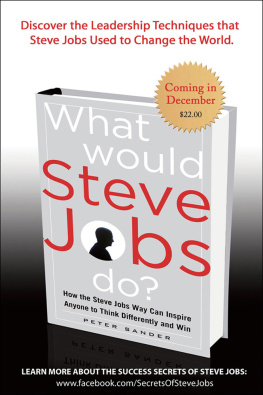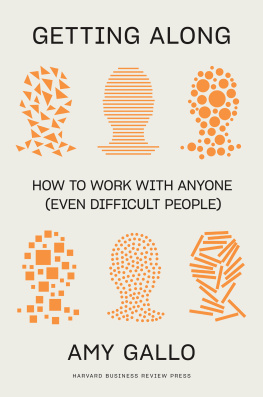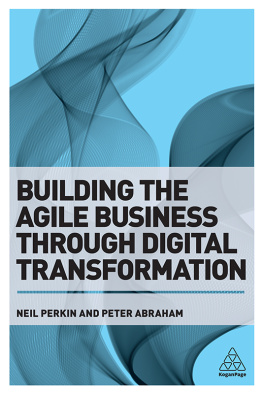Gallo Amy - HBR Guide to Building Your Business Case
Here you can read online Gallo Amy - HBR Guide to Building Your Business Case full text of the book (entire story) in english for free. Download pdf and epub, get meaning, cover and reviews about this ebook. City: Boston (Mass, year: 2015, publisher: Harvard Business Review Press, genre: Home and family. Description of the work, (preface) as well as reviews are available. Best literature library LitArk.com created for fans of good reading and offers a wide selection of genres:
Romance novel
Science fiction
Adventure
Detective
Science
History
Home and family
Prose
Art
Politics
Computer
Non-fiction
Religion
Business
Children
Humor
Choose a favorite category and find really read worthwhile books. Enjoy immersion in the world of imagination, feel the emotions of the characters or learn something new for yourself, make an fascinating discovery.

- Book:HBR Guide to Building Your Business Case
- Author:
- Publisher:Harvard Business Review Press
- Genre:
- Year:2015
- City:Boston (Mass
- Rating:4 / 5
- Favourites:Add to favourites
- Your mark:
- 80
- 1
- 2
- 3
- 4
- 5
HBR Guide to Building Your Business Case: summary, description and annotation
We offer to read an annotation, description, summary or preface (depends on what the author of the book "HBR Guide to Building Your Business Case" wrote himself). If you haven't found the necessary information about the book — write in the comments, we will try to find it.
HBR Guide to Building Your Business Case — read online for free the complete book (whole text) full work
Below is the text of the book, divided by pages. System saving the place of the last page read, allows you to conveniently read the book "HBR Guide to Building Your Business Case" online for free, without having to search again every time where you left off. Put a bookmark, and you can go to the page where you finished reading at any time.
Font size:
Interval:
Bookmark:
Arm yourself with the advice you need to succeed on the job, from the most trusted brand in business. Packed with how-to essentials from leading experts, the HBR Guides provide smart answers to your most pressing work challenges.
HBR Guide to Better Business Writing
HBR Guide to Building Your Business Case
HBR Guide to Coaching Employees
HBR Guide to Finance Basics for Managers
HBR Guide to Getting the Mentoring You Need
HBR Guide to Getting the Right Job
HBR Guide to Getting the Right Work Done
HBR Guide to Giving Effective Feedback
HBR Guide to Leading Teams
HBR Guide to Making Every Meeting Matter
HBR Guide to Managing Stress at Work
HBR Guide to Managing Up and Across
HBR Guide to Negotiating
HBR Guide to Office Politics
HBR Guide to Persuasive Presentations
HBR Guide to Project Management
Raymond Sheen
with Amy Gallo
HARVARD BUSINESS REVIEW PRESS
Boston, Massachusetts
HBR Press Quantity Sales Discounts
Harvard Business Review Press titles are available at significant quantity discounts when purchased in bulk for client gifts, sales promotions, and premiums. Special editions, including books with corporate logos, customized covers, and letters from the company or CEO printed in the front matter, as well as excerpts of existing books, can also be created in large quantities for special needs.
For details and discount information for both print and ebook formats, contact booksales@harvardbusiness.org, tel. 800-988-0886, or www.hbr.org/bulksales.
Copyright 2015 Harvard Business School Publishing Corporation
All rights reserved
No part of this publication may be reproduced, stored in or introduced into a retrieval system, or transmitted, in any form, or by any means (electronic, mechanical, photocopying, recording, or otherwise), without the prior permission of the publisher. Requests for permission should be directed to permissions@hbsp.harvard.edu, or mailed to Permissions, Harvard Business School Publishing, 60 Harvard Way, Boston, Massachusetts 02163.
The web addresses referenced in this book were live and correct at the time of the books publication but may be subject to change.
Library of Congress Cataloging-in-Publication Data
Sheen, Raymond.
HBR guide to building your business case / Raymond Sheen with Amy Gallo.
pages cm. (Hbr guide)
ISBN 978-1-63369-002-8 (paperback)
1. Business planning. 2. Strategic planning. 3. New business enterprisesPlanning. I. Gallo, Amy. II. Title.
HD30.28.S428 2015
658.4'012dc23
2015002965
Youve got a great idea that will increase revenue or productivitybut how do you get approval to make it happen? By building a business case that clearly shows its value.
Maybe you struggle to win support for your projects because youre not sure what kind of data your stakeholders will trust, or naysayers tend to shoot down your ideas at the last minute. Perhaps youre intimidated by analysis and number crunching, so you just take a stab at estimating costs and benefits, with little confidence in your accuracy.
To get any idea off the ground in your company, youll have to make a strong case for it. This guide gives you the tools to do that.
Youll get better at:
- Spelling out the business need for your idea
- Aligning your case with strategic goals
- Building the right team to shape and test your idea
- Calculating the return on investment
- Analyzing risks and opportunities
- Gaining support from colleagues
- Presenting your case to stakeholders
- Securing the resources your project needs
Success is enabling a wise decision.
Youre telling a story about how to meet a business need.
Seek counsel from those who know what will fly.
Who really has the authority to give your project the green light?
Find out what your stakeholders care about.
What pain are you trying to alleviate? What opportunity are you pursuing?
You need multiple perspectives to find the right solution.
The tough part is ruling out options.
Pave the way for realistic estimates.
Peg them to categories in your companys P&L.
Spreadsheets make it fairly painless.
Weigh the what ifs.
Summarize your story and support it with data.
Drum up support before decision time.
Use this brief checklist to make sure youve covered all the bases.
Appeal directly to decision makers.
Yes is meaningless unless stakeholders commit resources.
Get started, even if it means heading back to the drawing board.
BY CHRIS ANDERSON, TED CURATOR
Whether youre pitching a new project at your company or seeking funds for a start-up, youll need to develop a persuasive business case if you want your idea to go anywhere.
Your primary goal is to help people decide whether to invest resources in your idea. If youre making a case for a project or initiative within an organization, youre not starting in a vacuum. You have insight into your companys strategic priorities, and you probably know the people youre pitching to. But youve still got plenty of work to do. Your audiencethe leaders of your unit or companywill expect you to put yourself in their shoes. (What are their chief concerns? How does your project address them?) Theyll also expect a thoughtful analysis of the financials and the risks. Theyll want to understand what impact your project will have on the P&L so they can intelligently weigh the costs and benefits.
How does that differ from pitching a start-up? As an entrepreneur, youre selling potential partners and funders on you as well as on your idea. Though thats an important distinctionit affects what youre trying to achieve and what youll emphasize in your presentationyoull take the same general approach you would inside an organization. In both situations, you must identify a clear business need, get to know your stakeholders, and tell them a compelling story about how to profitably meet that need.
Thats what youll learn to do in this guide. Well focus on building internal business cases because thats the challenge most managers facebut the principles and tools will benefit entrepreneurs, too.
Internal business cases can serve many purposes, but here are three common reasons for developing one:
- You want to create a new product or service. Here, your goal is to demonstrate the profits your offering would add to the bottom line. Youll help decision makers weigh sales estimates against the costs of development, manufacturing, and delivery.
- You want to invest in a large IT system. When youre making a case for a new enterprise resource planning (ERP) system or a customer relationship management (CRM) database, for instance, youll take into account the impact on the entire businesswhich departments will benefit and which will incur the costs.
- You want to improve your companys facilities. This type of business case is becoming more common as organizations try to save money through energy efficiency. You may propose buying a new building, for example, or remodeling an existing one.
You might also create a business case to prioritize projects and propose cutting a few; obtain additional resources for an ongoing initiative; invest in building a new capability; or decide whether to outsource a function.
Font size:
Interval:
Bookmark:
Similar books «HBR Guide to Building Your Business Case»
Look at similar books to HBR Guide to Building Your Business Case. We have selected literature similar in name and meaning in the hope of providing readers with more options to find new, interesting, not yet read works.
Discussion, reviews of the book HBR Guide to Building Your Business Case and just readers' own opinions. Leave your comments, write what you think about the work, its meaning or the main characters. Specify what exactly you liked and what you didn't like, and why you think so.








